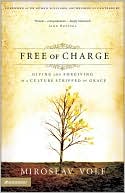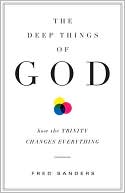Read Acts 17
This got kind of long so I'll give it in two parts.
Acts 17:16-34 probably more than any other biblical text gives an account of evangelization that most closely parallels our own culture. Athens was a highly pluralistic city that valued philosophical and religious diversity, but which at the same time had low moral standards. It was also a culture totally unfamiliar with the OT Scriptures and the God of the Jews. In this passage, Paul dialogues with Epicurean and Stoic philosophers. Epicureans were atheistic naturalists (contrary to popular opinion naturalism, even evolution, was not invented by Darwin). Stoics were pantheists. That is, they believed in a divine impersonal life force that guided all things down an inevitable path of fate. Almost every major modern philosophical position outside of monotheism will fit quite well into either Epicureanism or Stoicism. There is nothing new under the sun, right? In reaching these people with the gospel, Paul held firm to his gospel while at the same time contextualizing it to the people with which he was speaking. So what insight can we pick up from Paul about reaching our own culture with the gospel?
Be provoked - Paul saw all the idols in the city, and he was greatly disturbed. Every culture has its idols. Paul had the convenience of looking at a foreign culture and thus enabled him to see their idolatry, which is much more difficult to do when you live and breath the culture. Nevertheless, if you fill your mind with a biblical framework, all you have to do is watch a little TV, read a modern novel, open the newspaper, engage in conversations, and the idols will appear everywhere. In response, we like Paul should be incredibly provoked. This culture worships the self, possessions, entertainment, etc. instead of the true God. We need to be disturbed by that.
Converse - Engage people of different backgrounds in our daily life. Paul used his job as a tentmaker to converse with people in the marketplace. We need to use our everyday life situations to build relationships. Perhaps, we should even put ourselves into contexts where relationships will inevitably happen.
Know Your Culture - Paul, though Athens was a foreign city to him, obviously had a grasp of Stoic and Epicurean philosophy as well as the popular paganism. We need to study and know not only our own position as Christians, but also the thoughts and beliefs of those we engage. What do they value? Where do they find ultimate significance? What biases do they have? What do they have right? What historical events have shaped the way they think (e.g. the early American pioneering spirit as well as the American Revolution have had massive effects upon America's emphasis on the individual)? What are the beliefs behind popular opinions?
Use Language They Can Understand - Paul doesn’t use a bunch of OT terminology. He uses language that his audience can relate to. We should be careful about using church language like “saved.” Furthermore, even the religious language we do use needs to be defined. Words like “God,” “love,” “good,” “sin,” “right,” “wrong,” and many others, have a different meaning to us than to our culture.
Appeal To Popular Culture When Possible - Paul quotes Greek poets in order to make his point. If it works, use it. Find what our culture has right and use examples of popular media in order to make your point. Of course, this requires a very analytical mindset when viewing popular entertainment.
Tuesday, September 16, 2008
Subscribe to:
Post Comments (Atom)









No comments:
Post a Comment